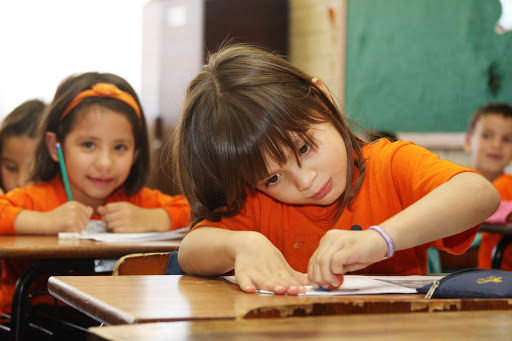The intervention program that focused on mothers and teachers to improve the development of children under their care
Maria Conceição do Rosário

Early childhood — a period from 0 to 6 years old — can set the course for an adult’s entire life. According to the American economist James Heckman, who received a Nobel Prize in Economics in 2000, each dollar invested during this period returns up to seven dollars to society. That is because emotionally healthy children are less likely to develop aggressive behaviors, drop out of school, or become involved in crime.
To ensure that the child reaches its full potential, it is also as important to take care of those who support the little ones, throughout early childhood and especially from 3 to 6 years old. We are talking about mother, father, teachers, grandparents. The quality of interaction and bonds with these people, who are often the child’s first reference points, can be the difference between healthy development and problems that can impact their entire future.
This window of opportunity for children and the challenges their caregivers face to promote an enriching environment for them motivated the psychiatrist Maria Conceição do Rosário, postdoctoral researcher in child and adolescent psychiatry at Yale University and adjunct professor at this university and at the Federal University of São Paulo (Unifesp), to develop specific programs for two essential caregivers who interact with children this preschool age: mothers and teachers. “We thought of an initiative that would reduce stress levels in adults and reinforce their skills to interact with children in a positive way,” says the researcher. “With this, we can improve the quality of life of mothers and teachers and reduce children’s exposure to all types of violence in the family and in preschool, whether verbal, psychological, physical or financial.”
Called the Mothers Support Program (PAM) and the Teacher Support Program (PAP), these initiatives were launched in municipal schools of Embu das Artes, in the interior of São Paulo. The PAM’s main objectives are to assist mothers or primary caregivers to practice stress reduction techniques, and to develop positive parenting skills, interpersonal communication and conflict resolution in a democratic manner.
The research team developed support materials to increase knowledge about early childhood for these caregivers. The program addresses various topics in 13 weekly meetings with maximum of 20 mothers and a session with their partners. During the meetings, mothers receive a notebook of activities to carry out with their children at home during the week and children’s books to encourage reading. All of these activities contribute to strengthen bonds and promote positive interaction between mothers and their children.
Regarding teachers, studies have shown that enriching experiences in preschools are associated with better academic performance in elementary and high school and less risk of dropping out. Therefore, PAP was designed to reduce teachers ‘stress levels and help them develop strategies to act as promoters of students’ integral development.
After the programs were implemented over four years, it was time to measure its impacts at various levels. Among them, were evaluated, the children’s cognitive, social, emotional and language development, the quality of life the quality of life, stress, and severity of anxiety and depression symptoms of mothers and teachers. The team also assessed the effects of the two programs on biological markers such as in cortisol levels, a biological marker of the impact of stress on people.
The results are still being tabulated, but the first qualitative data already demonstrate the benefits of both programs. Participating mothers reported fewer symptoms of anxiety, depression and stress when dealing with their children. They also reported an increase in the time and quality of interaction with their children and reduced verbal and physical violence cases. There were also reports of caregivers who abandoned the disciplinary belt altogether. “Several recognized that psychological and verbal violence is also a form of violence and begun to display more empathy by putting themselves in the position of their of children,” says Maria Conceição.
The mothers also described that joining PAM’s groups provided them with a feeling of “belonging” to a social support network and allowed them to learn from each other’s examples and reflect on their own experiences.
Behavior changes were also evident in the little ones. “The majority became more calm, participatory and communicative. Some children even began to speak better, simply because the mother dedicated more time to talking to them,” says the researcher. Experts also observed fewer symptoms in these children, such as anxiety, sadness, aggression, and restlessness. They also performed better on tests in cognitive, physical, social, and emotional development with greater autonomy to perform daily living activities, such as putting on shoes, making lace, dressing, and brushing teeth alone.
Among the teachers who joined the PAP, the study noted that the teachers started using voice care and stress reduction techniques in their daily lives. With increased knowledge about early childhood, they also reported that they began to use activities that stimulated their students’ development and become less nervous about their behavior. “All teachers revealed their needs to talk about their concerns and challenges in the classroom. By sharing their experiences in the group, they realize that the quality of interaction with children had a major influence on their development,” says Maria Conceição, who oversees the study.

